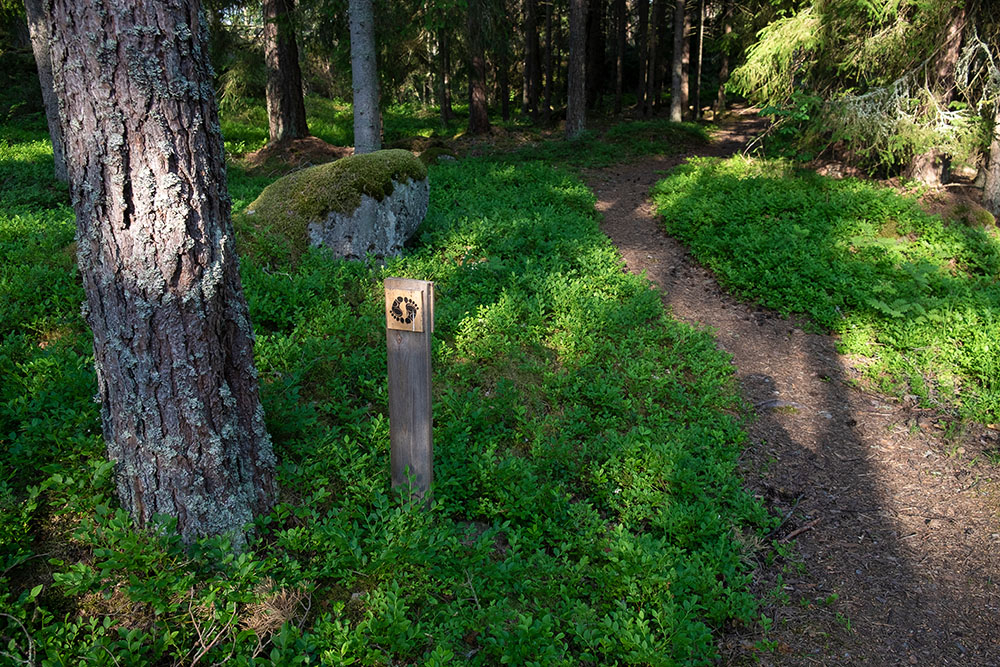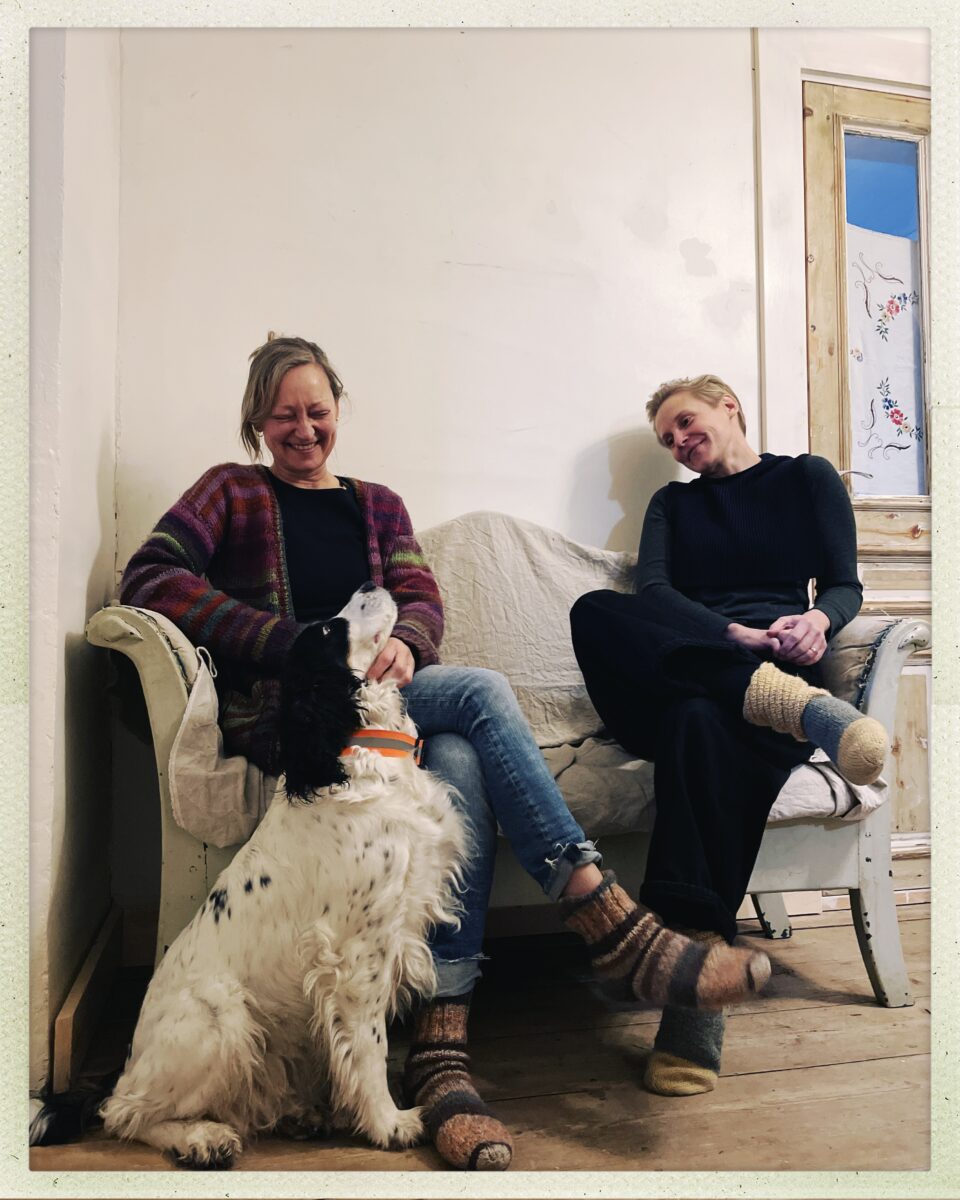Podcast: Barefoot Path
CAA went for a walk in a rainy autumn forest with the artists Sandra Nyberg and Pia Rousku-Hellgren at the Barefoot Path in the village of Retais on Korpo island. In this podcast, Nyberg and Rousku-Hellgren share their thoughts on the beginnings of the Barefoot Path annual environmental art exhibition, its increasing significance to artists and the local community, as well as its growing popularity as a destination in the Turku Archipelago.
Back in 2011, the Contemporary Art Archipelago exhibition brought together artists based in the archipelago with their peers working around the globe. The vast exhibition of new site-specific works spread across the islands and introduced contemporary art in its various forms both to new local audiences and to numerous visitors to the archipelago. It laid the ground for Barefoot Path, which was founded by Rousku-Hellgren and Nyberg to continue developing ambitious contemporary art programming in the region.
Barefoot Path has been commissioning new art works for the forest in Retais for ten years now. Its ethos has been to attentively nurture sustainable relations and practices. During this time, it has established strong international networks for artists and long-lasting collaborations with many cultural organisations and businesses in the archipelago.
In the words of Rousku-Hellgren and Nyberg, Barefoot Path “gives a permission to enter the woods”. It guides visitors not only to annually changing art works, but also invites them to encounter and attune to the island forest ecosystem. The surge in visitor numbers during the pandemic years has been so unexpected that the path was closed this summer (2022) to enable the environment to rest a little.
Listen to the podcast on SoundCloud.
The podcast has been produced as part of a programme Ecology of Change, which revisits the exhibition Contemporary Art Archipelago realised as part of Turku 2011 European Capital of Culture programme. Ecology of Change is supported by the Swedish Cultural Foundation in Finland.

